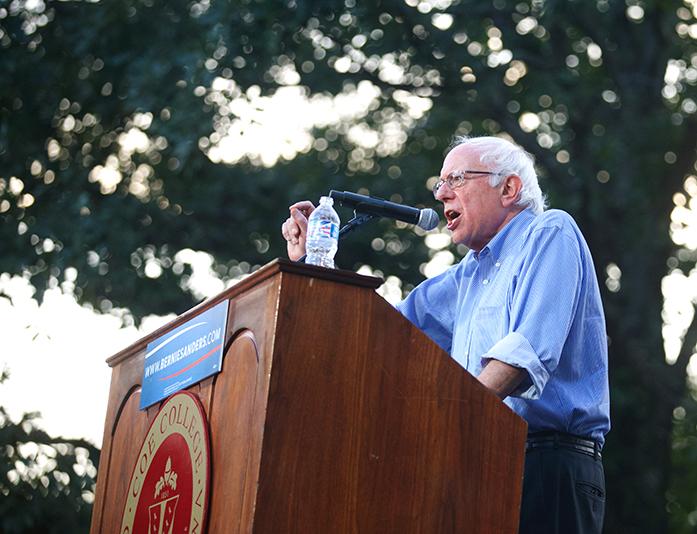Joe Lane
[email protected]
Sen. Bernie Sanders, I-Vt., is surging. Although the self-proclaimed democratic socialist has not passed likely Democratic nominee Clinton in most polls, his numbers are starting to pique the interest of many, especially in New Hampshire, where Sanders actually is leading Clinton. Unlike the surprise leader on the Republican side, however, Sanders is no stranger to politics; albeit a brand of politics considered unorthodox by many American moderates.
Perhaps the most impressive part about the Sanders campaign is that the 74-year-old has found a great deal of support from the exceptionally powerful millennial age group — an age group that other candidates have largely failed to access, thus far.
Sanders (in conjunction with other candidates) has made it clear that the American public wants one thing right now and is going to vote in accordance with it: accountability. But if millions of young, uneducated votes are tallied for Sanders, America may end up with a socialist president before his 20-something supporters really know what that means.
While Sanders has not gained my support, his political stances have resonated with a large portion of my generation. Which is even more impressive for a generation that has grown to distrust the government and, worse, has elected not to take an active role.
According to The Guardian, the 2014 midterms received the lowest youth (18- to 29- year-olds) voter turnout ever, with only 19.9 percent hitting the polls. The article notes, “Three-quarters of young people believe voting is not an effective way to change society.”
As The Guardian said, millennial voters of today grew up in a time marked by war, one that often times seemed futile at best. And as if the wars in Iraq and Afghanistan weren’t bad enough, many millennials left for college during the worst economic climate since the 1930s. No matter which end of the political spectrum voters in their 20s find themselves, they are yearning for a government that they can trust to support them better than the most recent administrations.
Many young voters, with or without a strong comprehension of socialism, find solace in Sanders. After all, looking at his campaign website, what’s not to like? The key issues Sanders addresses on his website include the following: “Creating decent paying jobs,” “Racial justice,” “Fighting for women’s rights,” and “A living wage.” Young people facing an uncertain future can easily get behind these ideals.
Not only does Sanders attract the attention of voters with his pertinent issues but many believe that he will walk the walk also. However, Sanders’ solutions come with a potential price to pay: socialism.
Perhaps Sanders is proving that socialism isn’t the political boogeyman many seem to think it is. Perhaps he is proving that America can run on a (“democratic”) socialist system. But in all likelihood, the generation becoming famous for its apathy toward voting is missing something.
For a generation that barely shows up to vote at all, it would be surprising if we truly understood what socialism is and how it functions in practice — not in theory. And while I want my generation to vote and take an active role in society and their government, I fear what may result from millions of uneducated votes.
There can be little denying that the mild-mannered Sanders is one of the most likeable individuals running for president, and I cannot honestly say if I would vote for him at this point, but before I even consider it, I would need to know just how socialist he is, and I’d like to think that many American voters will feel obligated to learn this as well.



